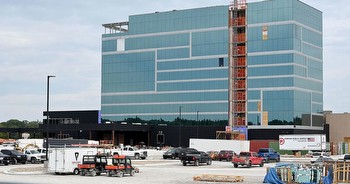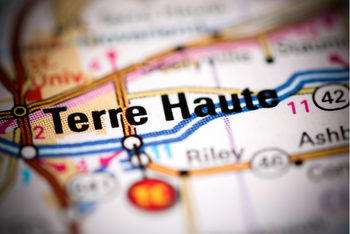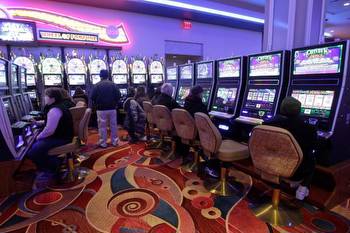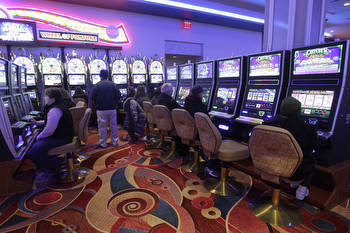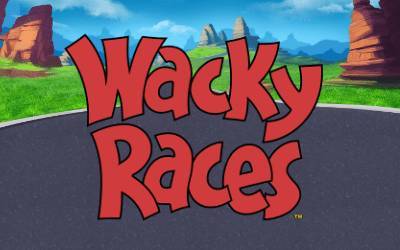Want to work at a casino? Getting hired might be harder than you think
So, you want to work at a casino?
Like getting a straight flush, getting the job might be harder than you think.
With a new casino on the horizon for Vigo County, getting hired to work there likely will require more steps than just providing a resume, depending on the scope of work.
Casinos and casino-related jobs employ 12,496 workers in Indiana casinos as of late October. Of those, 8,348 work in casinos and 4,148 work as sports wagering venue workers or as suppliers to casinos, according to the Indiana Gaming Commission.
Many of the sports wagering workers are licensed in Indiana, but can work out of state as third party vendors to casinos.
“In the past two years we have seen a huge increase in the number of occupational licenses we issue because of sports wagering,” said Jenny Reske, deputy director of the Indiana Gaming Commission.
Four casino operators are vying for a Vigo County casino license, and depending on which company the Gaming Commission selects, it is expected to create between 400 and 800 permanent jobs.
The Gaming Commission is slated to make a selection on Nov. 17, but it is uncertain if the agency immediately will also award a casino license, pending an appeal from Lucy Luck Gaming. That company is contesting the IGC’s decision in June not to renew its Vigo County casino license.
Additionally, the IGC expects to hire 12 enforcement officers representing the Gaming Commission at a new Vigo County casino. Those officers monitor casino operations for casino regulatory compliance and “conduct regular, timely, and thorough testing of electronic gaming devices and other gaming equipment at casinos,” Reske said.
Those officers are certified police officers for the state, Reske said, and even if an applicant is a former police officer, they must attend the Indiana Law Enforcement Academy’s casino regulatory training.
Getting licensed
A state occupational license is required for certain casino jobs. However, a person must first apply to a casino and then have an offer of employment from that casino before they can apply for state licensing. The casino will provide licensing instructions and forms.
The hiring process will require payment of a state applicant fee and an occupational license fee and will require background checks. The two fees range from a combined high of $1,100 to a low of $100.
The casino pays those fee costs to the IGC. However, the casino may require the person seeking a job to reimburse the casino or may deduct those fee costs from their employee paycheck.
There are three levels of employee licenses, and each comes with an application fee. The application fees are:
• Level 1 license $1,000.
• Level 2 license $200.
• Level 3 license $75.
If approved in the application process, then an occupational license fee is required. Each license is valid for one year. The occupational license fees are:
Level 1 License: $100
Level 2 License: $50
Level 3 License: $25
Casino jobs for the three license levels include:
• Level 1: This is the highest level which includes members of a casino’s board of directors, a general manager, or other managers such as floor managers that are decision makers at an executive level. Each casino has different job titles based on their own organizational chart.
“We look at the job descriptions and we determine the level of decision making and autonomy the person has in assigning a license level,” said Jenny Reske, deputy director of the Indiana Gaming Commission. “So a level 1 is someone who has authority, they are a supervisor, they can make decisions and have a higher level of trust,” Reske said.
As of October, there were 933 Level 1 licenses in Indiana, according to the IGC.
• Level 2: This is a level for a job such as a card table dealer, someone who handles money who is involved in gaming but who is not a supervisor or manager. As of October, there were 9,547 Level 2 licenses in Indiana, according to the IGC.
• Level 3: This is someone who works on the gaming floor, but does not handle money, such as a cocktail server. This is the lowest level “and we do the least involved investigation on those individuals,” Reske said. This level can include third party partner businesses, which do jobs on contract. The state then reviews those job titles as well “and people could come in on a vendor’s badge,” Reske said.
“The Gaming Commission is set up to accommodate the needs of each individual [casino] property. We take requests and proposals from each operator that will meet their specific needs and then we work through those within the framework of our rules and state statutes,” Reske said. “We look at the nature of the work that each individual does and we base the determination [for the licensing level] on whether or not they need a license.”
As of October, there were 2,016 Level 3 licenses, according to the IGC.
There are also workers who do not need a state-issued license and are not connected directly to the casino floor. Examples of such workers include someone who works at a restaurant that is not on the casino floor. Another example is a person who cleans hotel rooms or third party vendors who deliver to the casino property but do not need access to the gaming floor.
“We look at proximity to gaming, access to the casino floor, the nature of the work, and we make a licensing determination based on that,” Reske said. “It is difficult to use a job title in reference to work; that is why casinos expend a lot of resources into carefully defining what each person does, and they have to submit a lot of documentation [to the IGC] to show its organizational chart,” Reske said.
“Only individuals that casinos indicate that they intend to hire are eligible to submit an application to the Gaming Commission,” Reske said. “We don’t become involved with an individual licensing process until the casino has advised us they intend to hire the person. The casinos do engage in pretty extensive recruitment efforts when they do open a new casino. They want to make everyone comfortable that they are a great place to work and have a profile in the community that attracts talent,” Reske said.
The timeline to get a job varies.
“Level 3 and Level 2 applications can be processed relatively quickly,” Reske said. “Our process, in order to accommodate the applicants and casinos, is that we will do an initial review of the application and issue a temporary license that will allow a person to begin work. Then we will conduct all the necessary review, including having fingerprints run and obtaining criminal history information before issuing a permanent license.”
In a look at casino employment in 2020, Indiana licensed casinos range from nearly 61% (Hollywood Casino) to nearly 100% (Hoosier Park Casino) of employees who are Indiana residents.
“We are excited to see casinos with high local and in-state employment numbers, but it is not a statutory requirement to meet a certain quota,” Reske said.
Casinos and average salary
Indiana casinos operate in 13 locations, with one casino — Four Winds Casino in South Bend — an Indian gaming casino regulated by the U.S. National Indian Gaming Commission. The other 12 are state-licensed and regulated by the Indiana Gaming Commission. Two of the state-licensed casinos are at horse race tracks.
Four Winds Casino is owned by the Pokagon Band of Potawatomi Indians and is regulated by the federal government. In August, the Four Winds Casino started a revenue sharing compact with the state of Indiana that allows for Class III games, such as Vegas-style slots and table games.
There are other casinos owned by other Indian organizations operated under state licenses in Indiana.
Caesars Entertainment this year sold Caesars Southern Indiana casino to the Eastern Band of Cherokee Indians. The tribe retained the Caesars branding and operates the casino under state license rather than under the U.S. Indian Gaming Regulatory Act.
Hard Rock Casino Northern Indiana in Gary is 85% owned by Hard Rock International, an enterprise of the Seminole Tribe of Florida. Hard Rock is a state-licensed, commercial casino rather than a federally regulated Indian gaming casino. Hard Rock this year replaced the Majestic Star 1 and Majestic Star II casinos.
Hard Rock is also one of the four casino operators vying for the Vigo County casino license, applying as HR Terre Haute LLC. Others seeking the Vigo County casino license are CDTH LLC (Churchill Downs); FHR-Atlas LLC (Full House Resorts, Inc.) and Terre Haute Entertainment LLC (Premier Gaming Group and Terre Haute Entertainment Holdings LLC).
Vigo County is slated to become the 14th location in the state for a casino. The state-regulated casinos are Ameristar Casino East Chicago; Rising Star Casino Resort (Rising Sun); Hollywood Casino (Lawrenceburg); Harrah’s Hoosier Park Casino (Anderson); Bally’s Evansville (formerly Tropicana); Horseshoe Casino (Hammond); Belterra Casino Resort & Spa (Florence); Indiana Grand Casino (Shelbyville); Blue Chip Casino (Michigan City); Hard Rock Northern Indiana (Gary); Caesars Southern Indiana (Elizabeth); and French Lick Resort Casino.
In a glance of salaries in the state’s licensed casinos, in 2015 the average yearly entry level salaries ranged from a low of $20,190 at French Lick Resort with 1,558 employees, to a high of $37,801 at Ameristar Casino, with 1,410 employees, according to the IGC. In that year, average yearly dealer salaries ranged from a low of $32,797 at Majestic Star I with 785 employees to a high of $61,333 at Hollywood Casino, with 911 employees.
In 2017, the lowest average yearly entry level salary was $21,518 at Indiana Grand Casino with 978 employees. The highest average yearly entry level salary in that year was $40,832 at Majestic Star II with 201 employees. In that year, the average yearly dealer salaries ranged from a low of $31,484 at the Majestic Star I with 763 employees to a high of $64,064 at Belterra Casino with 920 employees.
In 2019, the lowest average yearly entry level salary was $24,782 at French Lick Casino with 1,790 employees, with the highest average yearly entry level salary at $41,374 at Indiana Grand Casino with 967 employees, according to the IGC. In that year, the average yearly dealer salaries ranged from a low of $33,959 at Horseshoe Casino with 1,745 employees to a high of $60,802 at Hollywood Casino with 815 employees.
In 2020, casinos starting in March were closed, and remained closed for three months, before reopening in June under COVID-19 guidelines. Two casinos — Tropicana (Now Bally’s) and French Lick Resort — did not pay employees during the shutdown, according to the IGC. In 2020, the lowest average yearly entry level salary was $26,444 at Blue Chip Casino, with 587 employees, with the highest average yearly entry level salary at $43,233 at Belterra Casino, with 567 employees.
In that year, the average yearly dealer salaries ranged from a low of $28,847 at Horseshoe Casino, with 1,091 employees, to a high of $62,338 at Caesars Southern Indiana, with 891 employees.
The application process
The Indiana Gaming Commission has several requirements under its application process. Once a casino selects an employee, it will provide the prospective employee with a license application, depending on position.
Under the IGC’s job application process:
• The person seeking a job must provide documentation such as a birth certificate or naturalization papers.
• The person must provide any documentation of military service.
• If the applicant has an arrest record or criminal history, that person must provide court documentation “demonstrating the outcome of all arrests or criminal charges,” according to the IGC.
The ICG requires a background investigation for each job applicant. At the top level, Level 1, that includes a financial investigation. Other requirements for applicants include being photographed for an identification badge and fingerprinted by gaming agents at the casino offering a job. All fingerprints are then forwarded to the FBI for a complete national criminal history check.
Once that is complete, the ICG staff conducts a preliminary review and investigation. The job applicant is then issued a temporary license to allow the person to work until a full investigation is performed. A temporary license can be unilaterally revoked by the ICG’s executive director without a hearing.
In the IGC’s review, the state considers:
• An applicant must be at least age 21.
• An applicant must be qualified to perform the duties required of the applicant by the casino.
• An applicant must not appear on the (gaming) exclusion list in Indiana or in any jurisdiction.
• An applicant must never have had a gaming license suspended or revoked in any other jurisdiction.
• An applicant must not be currently abusing drugs or alcohol or both.
• An applicant must be in substantial compliance with all state and federal tax laws.
• An applicant must be of good moral character and reputation.
• An applicant must meet any other standard that the commission deems necessary to ensure compliance with the law.
An applicant who has been convicted of a felony or gambling related misdemeanor offense may not be issued a license, according to the IGC. In certain limited situations, an individual who has been convicted of a felony may be able to apply for a waiver of the felony conviction prohibition.
Additionally, once hired to work in a casino, a person is required to report to the IGC if they are arrested or have any criminal charges; file for bankruptcy; or report any other information that would affect their license suitability. That information must be reported to the state within 10 days of the occurrence.
“If a [licensed employee] does not comply with the statutes and regulations governing casino gambling, the licensee may be subject to disciplinary action including suspension, revocation of the license, or a fine up to $5,000,” according to the IGC.








